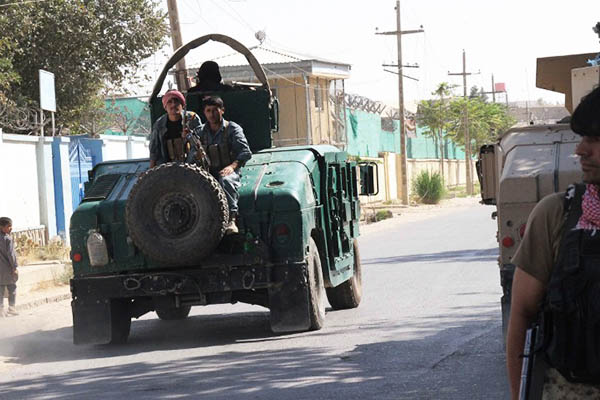
Nasir Waqif—AFP
Fact-finding commission claims the country’s nation security council is also at fault for ‘confusing’ bureaucracy.
A leadership failure and confusion among Afghan security services were to blame for the temporary fall of Kunduz city to the Taliban in September, an inquiry found Saturday.
The Kunduz siege—the first time the Taliban took control of a major city since being toppled from power in 2001—was a stinging blow to Western-trained Afghan forces, who have largely been fighting on their own since NATO’s combat mission ended in December. It was also an embarrassment for President Ashraf Ghani, elected on a promise to bring peace to the country after decades of war.
“The first biggest failure is leadership,” said Amrullah Saleh, one of two heads of the Afghan fact-finding commission appointed by Ghani. “Weakness in leadership, complexity within structure, and misuse of facilities and resources were the factors” that allowed the Taliban to overrun the city, he said.
He said the Taliban had managed to seize 37 armored vehicles and about 1,000 different types of weapons from the security forces once they had entered Kunduz. The national security council, which brings together advisers and ministers and is headed by Ghani, was also at fault, Saleh said, describing its heavy bureaucracy as “confusing.”
Those Taliban involved in the siege took “instructions” from “someone in Peshawar, Pakistan” who had been planning the attack for at least a year, Saleh claimed. The Afghan government regularly accuses Islamabad of supporting the insurgency, but has to provide any evidence supporting these allegations.
The Taliban announced its withdrawal from Kunduz two weeks after the city’s fall, though the government claimed to have recaptured it after three days. NATO forces who helped to take back the city came under fire after a U.S. airstrike on Oct. 3 pummeled a hospital in Kunduz run by Doctors Without Borders (MSF), killing 30 people, many of them MSF staff.
The medical charity shut down the trauma center, branding the incident a “war crime” and demanded an international investigation into the incident that sparked an avalanche of global condemnation.
